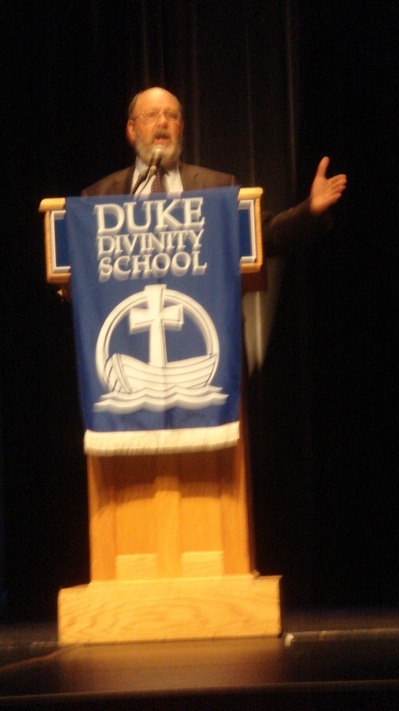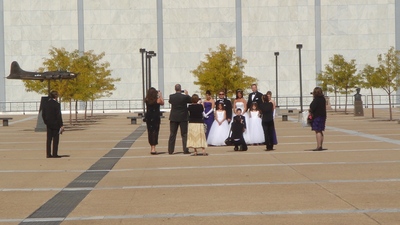Clint Eastwood has confronted the issue of death and dying, and even the afterlife before in several films (see e.g. Gran Torino or Million Dollar Baby), and this film is neither an apologetic for belief in the afterlife (it simply takes for granted there is such a thing and place) nor is it a polemic against other views. And his work with Kathleen Kennedy is always stylish and classy. This film is no different.
The premise of this movie is simple— given there is an afterlife, can we contact those on the other side, and if so, do we really want to know what they would tell us? Matt Damon, playing the sometime psychic from San Francisco (what a surprise) George Lonergan is a person who would rather not be who he is, precisely because he knows that though people may desperately want to contact the dead, it may well be disappointing, profoundly unsettling, or even soul-destroying to hear what they will tell you through the medium.
Though in this movie the medium is not the message, nor is the message about the medium, we get a glimpse of how being a genuine medium can be a curse more than it is a blessing. One gets the feeling that George Lonergan could resonate with the medium of Endor in the Bible, whom Saul consulted. It appears to often be a thankless task. It also appears that it has not dawned on many Christians that the Bible actually suggests that before the final resurrection and before final judgment, there are a lot of departed souls out there in the land of the dead, and many of them are not in heaven with Jesus either.
There are three interwoven stories in this movie— the story of Lonergan, the story of a French TV star who has a near death experience which not surprisingly shakes her up, and the story of twin brothers one of whom is tragically killed by a lorry. Somehow, someway, Damon is dragged into their stories, by apparently chance meetings at a London book fair. Or was it chance? Could it have been a divinely arranged harmonic convergence? The movie raises this issue, but does not attempt to give some glib answer. For two hours and nine minutes in this leisurely paced film our minds are teased into active thought about this subject, and along the way we are treated to a story of love lost and found. In some ways this story is a romance with a supernatural angle (though not like the film Ghost and its imitators).
I must say that I do not agree with Josh Hurst’s review of this film in CT, when he complains that God should have at least been a subject in this film, and religion should not have been viewed entirely negatively in it. It is not necessary to bring God, even as deus ex machina into this film, nor is there any sort of heavy handed critique of religion, or even Christianity in this film. This film’s subject is about human experiences of, or desire for contact with, spirits who have departed, and it is also about near death experiences.
There is indeed plenty of scientific study of both these phenomena, as well as moving testimonies of those who have come back from the dead, such as Piper’s wonderful book 90 Minutes in Heaven. And Protestant Christians can hardly sneer at such reports when there are credible reports that one of their patron saints—- C.S. Lewis himself, appeared post mortem to J.B. Phillips, a man not given to wild and crazy paranormal beliefs or experiences.
I also like the fact that Eastwood takes a critical approach to psychics— for every one George Lonergan in the film we are introduced to four quacks and charlatans. One of the problems with dealing with the supernatural, whether we are talking miracles, prophets, or mediums, or near death experiences is that the proportion of charlatans is often high, and this tends to discredit the whole enterprise in the eyes of those capable of critical thinking and not given to being overly gullible.
But this movie should not be called Gullible’s Travels. It is a serious film about a serious subject, and of course from a scientific point of view, ‘disconfirmation’ is not possible from this side of the life/afterlife divide. No scientist worth his salt would be so foolish as to think you can prove a negative about a subject that is not entirely subject to empirical scrutiny. Absence of certain kinds of empirical evidence is not evidence of absence of reality. It indeed may say more about the limitations of our methodologies of empirical testing of things. Proving there is no afterlife is about as possible as proving there is no such thing as love. Just because you cannot find or place things like love or guilt or the afterlife under the microscope absolutely does not mean they do not exist.
I liked this film, though its story line is not perfect. The cinematography is good (I like the ghostly images when Lonergan makes ‘contact’), the music is appropriate (full of pathos ala Beethoven), the lead characters are fine actors (I especially enjoyed Cecile de France in the lead— never seen her before, and Damon does a nice job of being the psychic who is uneasy in his own skin), the international flavor of the film is good, and the film has some nice ironic moments as well, as well as some nice romantic ones (the scenes in the cooking class involve some other kinds of cooking and chemistry as well). I would commend this film as a good conversation starter with the skeptical. So go see this film, and report back to me…. hereafter.


